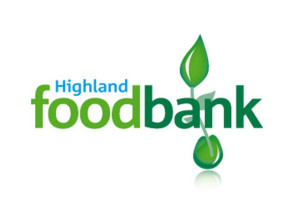Highland
Foodbank
Highland Foodbank is part of the Trussell Trust’s UK-wide network, managed in the Highlands by local Christian charity Blythswood Care
The Nairn Highland Foodbank Centre was launched in May 2014. Operating out of St. Mary’s Church hall, it is open Tuesday, Wednesday and Friday from 12.00 noon – 2.00 pm.
Working in collaboration with partner agencies, clients are given food vouchers which they can bring to the Food Bank Centre to exchange for non-perishable food items.
The Highland Foodbank is dependent on the generosity of the public and welcomes donations of long life food and drink (see list below).
Highland foodbank is part of The Trussell Trust’s UK-wide foodbank network. They partner with churches and communities to open foodbanks to provide help for people in crisis in the UK. People go hungry for a variety of reasons. Rising costs of food and fuel, static income and changes to the benefit system, high unemployment and receiving unexpected bills whilst on low income are contributing factors causing people to go to the foodbanks for help. The Trussell trust foodbanks provide a minimum of three days emergency food and support to people experiencing crisis in the UK.
Shopping List of non-perishable items suggested by the Trussell Trust:
Milk (UHT or powdered)
Sugar (500g)
Tea Bags/Instant coffee
Long Life Fruit juice (carton)
Breakfast Cereal
Instant mash potato
500/1kg Rice
500/1kg Pasta
Pasta sauces
Tinned Soup
Tinned Meat – Ham / Corned Beef
Tinned Fish – Tuna / Salmon
Tinned Mince / Stew
Tinned potatoes
Tinned Vegetables
Tinned Tomatoes
Tinned Custard / Rice Pudding
Tinned Sponge pudding
Tinned fruit
Jam
Oatcakes / Crackers
Biscuits or snack bars
All items MUST Comply with the “Food Safety Regulations”, and bare a viable “USE-By Date” therefore Home made products, EG. Jam, Pickles, Chutney etc. which are not normally marked, unfortunately cannot be accepted.
Please also ensure that the “USE BY DATE” has at least 3 months to run.
How a Foodbank Works:
Step 1 – Non-perishable food is donated by the public
Step 2 – Volunteers sort and pack food into emergency food boxes
Step 3 – Frontline care professionals such as doctors and social workers give foodbank vouchers to people in crisis
Step 4 – Foodbank vouchers are exchanged for 3 days of food at a foodbank
Step 5 – Foodbanks take time to listen and signpost clients to further support










